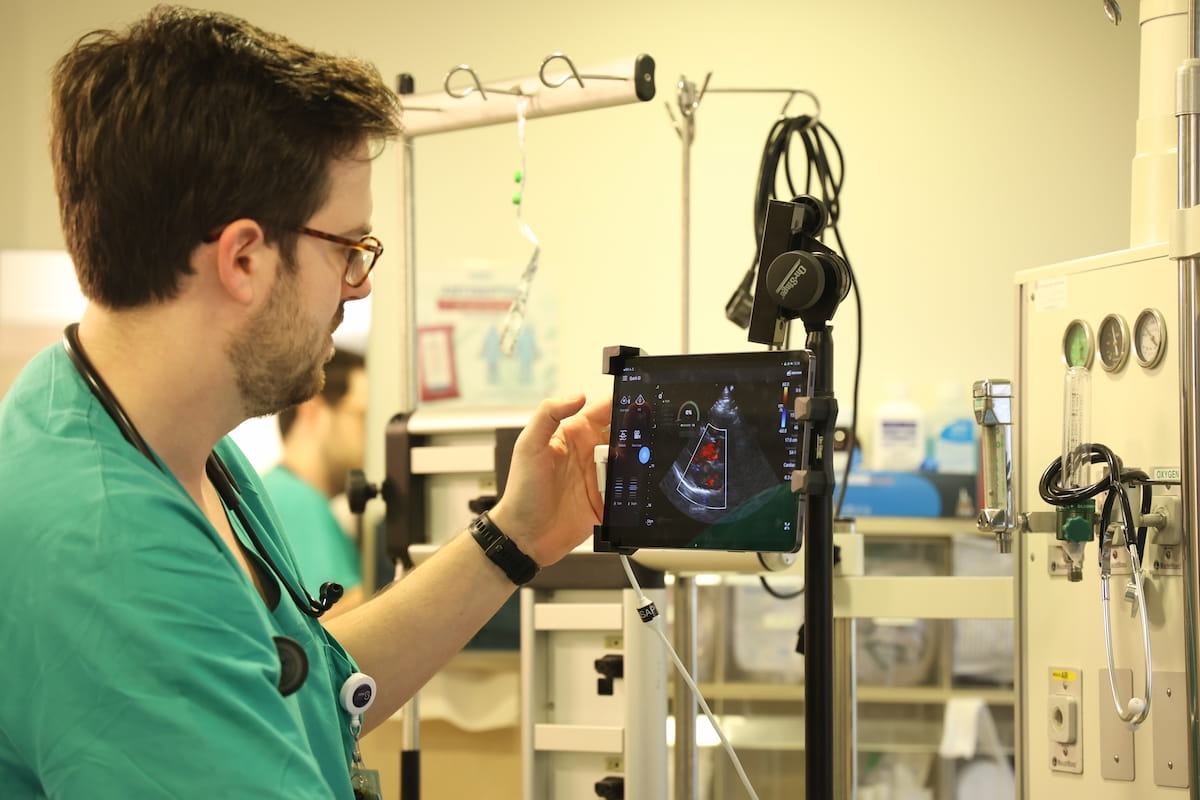FDA Clears Emerging Cardiovascular Point-of-Care Ultrasound Platform
Combining four CAD modules for valvular pathologies with a variety of automated measurements, the AI-enabled AISAP Cardio ultrasound system reportedly facilitates up to a 90 percent accuracy rate in detecting common cardiac conditions.
The Food and Drug Administration (FDA) has granted 510(k) clearance for the AISAP Cardio, a cloud-based, point-of-care ultrasound (POCUS) system that may enable early detection for a variety of cardiac conditions.1
Offering automated analyses and reports, the AISAP Cardio platform has four computer-assisted diagnosis (CAD) modules for valvular pathologies, according to AISAP, the developer of the POCUS system. Trained on over 24 million echocardiography video clips, the AISAP Cardio platform provides automated measurements for cardiac structural functional parameters, ranging from left ventricle ejection fraction (LVEF) and right ventricular fractional area change (RV FAC) to inferior vena cava (IVC) diameter.

AISAP notes that recently published prospective research showed that use of the AISAP Cardio platform led to management changes in one-third of patients.2 For clinicians with basic ultrasound skills, AISAP maintained that AISAP Cardio has up to a 90 percent accuracy rate in assessing common cardiac structural and functional parameters.1
Smadar Kort, M.D., said the AISAP Cardio platform, which will be commercially available on September 1, has “game-changer” potential.
“We know that structural heart disease and heart failure are the leading causes of hospitalization and morbidity in the U.S. Enabling a wide variety of qualified physicians to quickly and accurately diagnose these conditions at the bedside could lead to earlier detection and treatment, and better patient outcomes, as well as greater efficiencies and cost savings to health systems, while ultimately saving countless lives,” noted Dr. Kort, the system director of non-invasive cardiac imaging at Stony Brook Medicine in Stony Brook, N.Y.
References
1. AISAP. AISAP’s CARDIO AI-powered point-of-care ultrasound diagnostic assessment software receives FDA clearance. Business Wire. Available at: https://www.businesswire.com/news/home/20240822701346/en/AISAP%E2%80%99s-CARDIO-AI-powered-Point-of-Care-Ultrasound-Diagnostic-Assessment-Software-Receives-FDA-Clearance . Published August 22, 2024. Accessed August 22, 2024.
2. Fisher L, Yarkoni Y, Faierstein K, et al. Enhancing handheld point-of-care echocardiography with artificial intelligence: a prospective clinical trial. J Am Coll Cardio. 2024;83(13):2344.
Newsletter
Stay at the forefront of radiology with the Diagnostic Imaging newsletter, delivering the latest news, clinical insights, and imaging advancements for today’s radiologists.
Stroke MRI Study Assesses Impact of Motion Artifacts Upon AI and Radiologist Lesion Detection
July 16th 2025Noting a 7.4 percent incidence of motion artifacts on brain MRI scans for suspected stroke patients, the authors of a new study found that motion artifacts can reduce radiologist and AI accuracy for detecting hemorrhagic lesions.